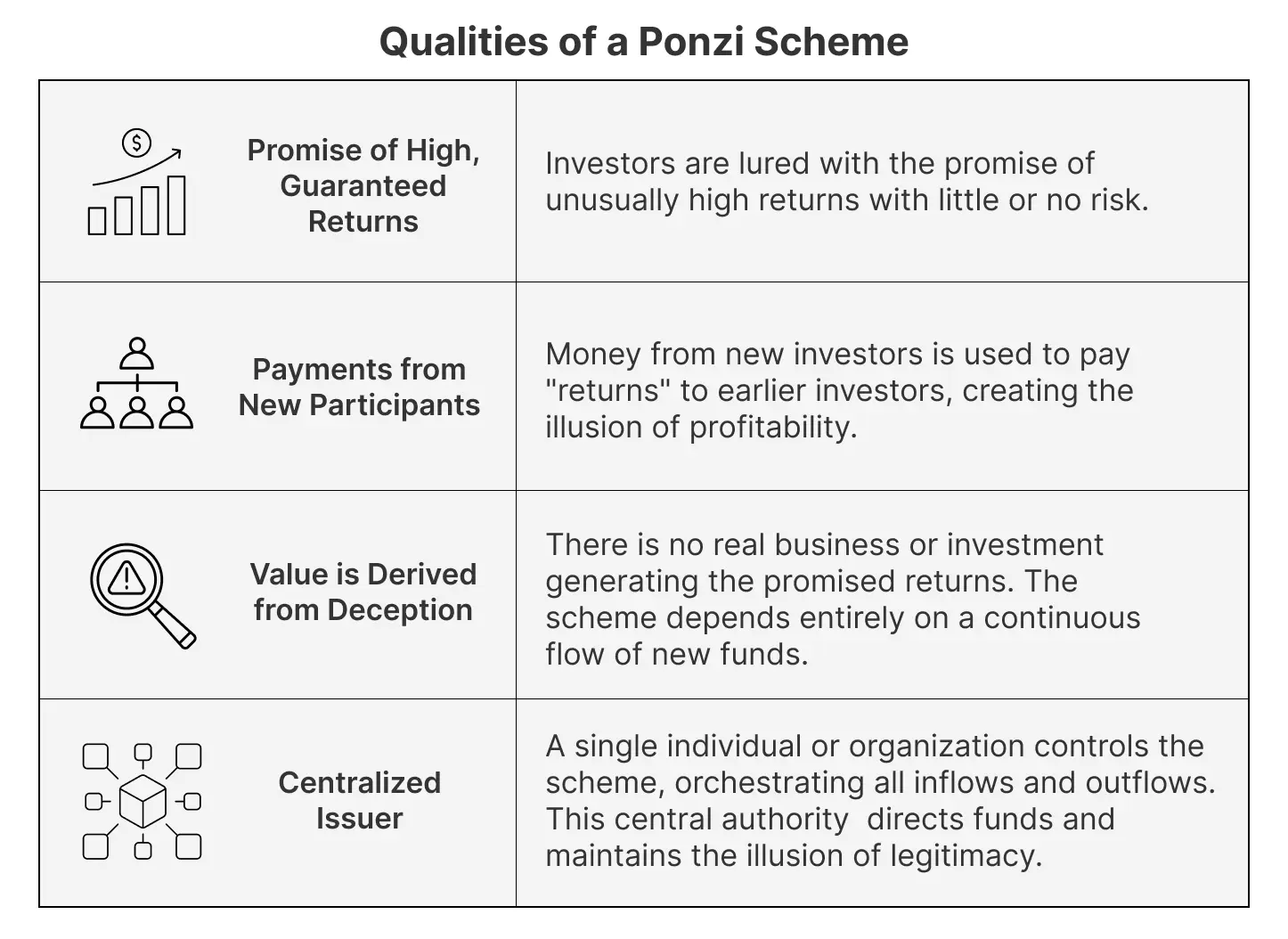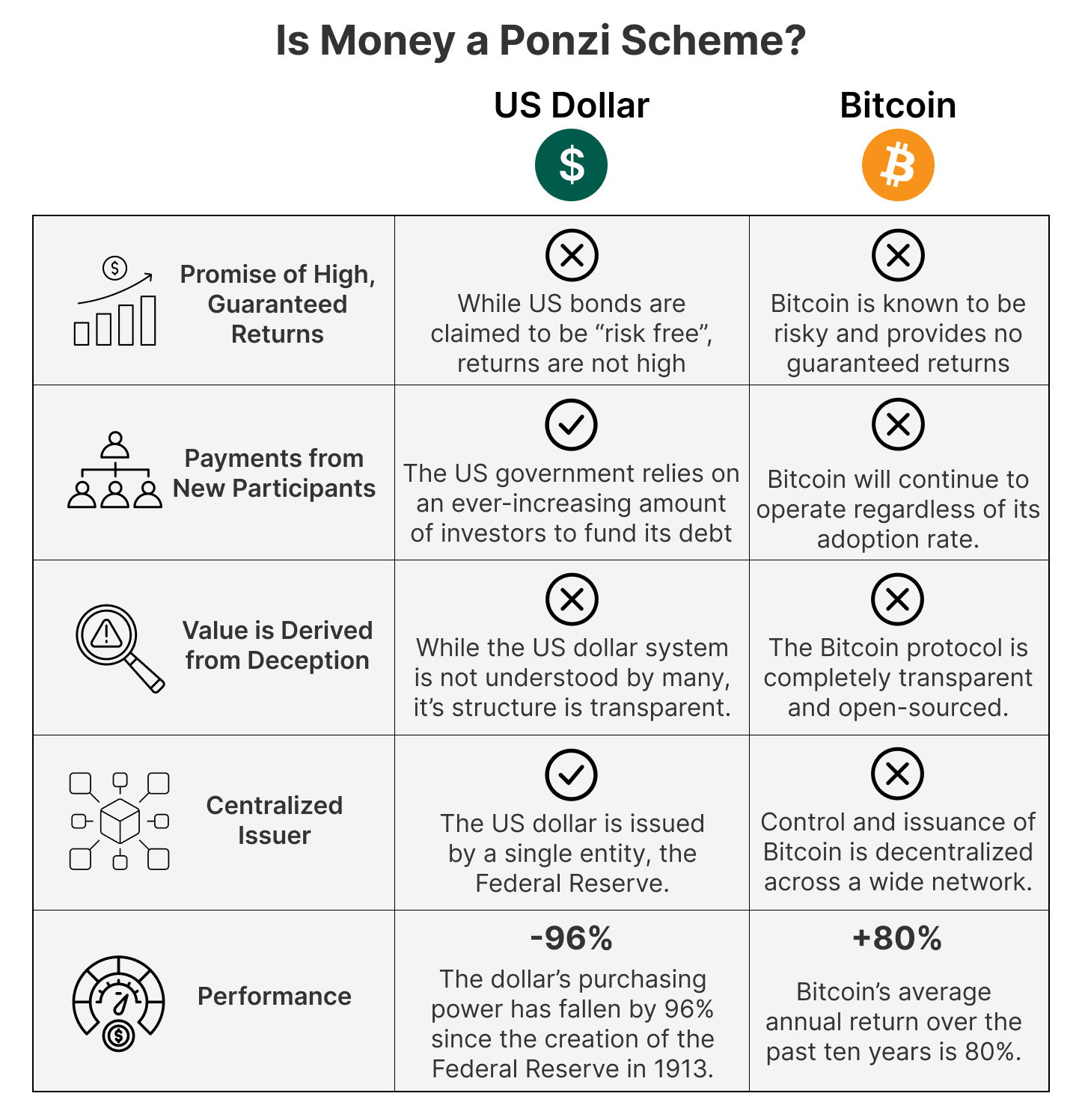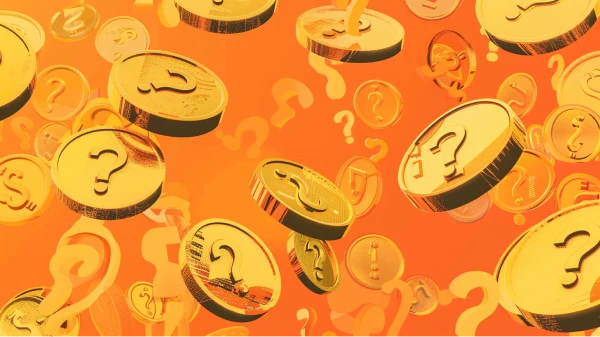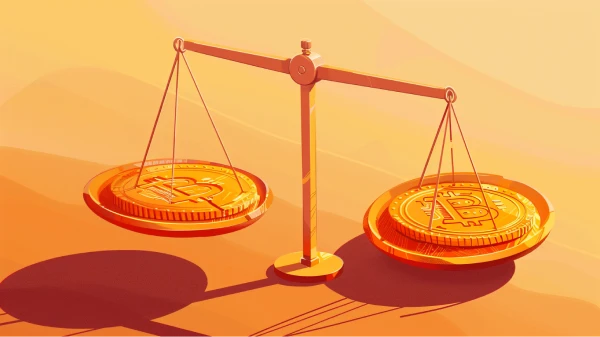Bitcoin has been criticized as a Ponzi scheme due to its high investment returns and its history of being marketed by some as a get-rich-quick strategy—without any downside. Additionally, like all forms of money, Bitcoin’s value proposition can be difficult to understand in that it serves as a store of value without cash flows. This article explores why Bitcoin is fundamentally different in structure from Ponzi schemes.
What Is a Ponzi Scheme?
A Ponzi scheme is a form of financial fraud where returns to early investors are paid using funds from new ones, rather than from actual profits. The scheme depends on continually attracting new participants to sustain itself, making it inherently unsustainable in the long run.
This form of fraud is named after Italian con artist Charles Ponzi, who scammed investors in 1919 by guaranteeing 50-100% returns over a short time period by claiming to trade postal reply coupons. Instead of trading these coupons, Ponzi used funds from new investors to pay earlier ones, creating the illusion of success.
Ponzi schemes are marked by four fundamental characteristics that contribute to their unsustainable nature.

Scammers running these schemes are often unlicensed and unregulated, and fail to provide accounting statements or transparency about their actions.
Why Bitcoin Is Not a Ponzi Scheme
On its face, Bitcoin appears to have similarities with Ponzi schemes: Its average annual return over the past ten years is over 80%, and returns are often highest during times of market euphoria.
Additionally, as a cryptocurrency, investors new to Bitcoin are often drawn towards newer, more exciting cryptocurrency investments that promise high returns with little-to-no downside. There have been many cryptocurrency-related scams, frauds, and Ponzi schemes during each of Bitcoin’s bull markets.
However, Bitcoin is fundamentally different from other cryptocurrencies: It is decentralized with no central authority. Its monetary properties are transparent and available for anyone to scrutinize. Lastly, while some may claim to know what Bitcoin’s future performance will be, Bitcoin’s price performance is volatile and unpredictable.
Under a more careful examination, Bitcoin fails to meet all the criteria of a Ponzi scheme:
- No guaranteed returns: Bitcoin’s price is market-driven, reflecting the supply and demand of a global market. No one can predict bitcoin’s future price with accuracy.
- No reliance on continual new participants: While Bitcoin benefits from increased adoption, it will not collapse if adoption stalls or declines. Bitcoin has survived through 4 multi-year bear markets, where its price fell by over 70%. Despite this, the network continues to operate without change.
- Trust without deception: Ponzi schemes rely on deceit, exploiting new participants by selling a false story. Unlike Ponzi schemes, everything about Bitcoin is open and transparent: its whitepaper, codebase, inflation rate, and ownership distribution are all free to inspect.
- Lack of centralized control: Unlike Ponzi schemes and fiat currencies, Bitcoin is a decentralized network with no central issuer or authority.
Bitcoin is a form of money, not a Ponzi scheme. But do other forms of money share similarities with Ponzi schemes?
Is Money a Ponzi Scheme?
Money is a foundational tool of society, providing real value in its ability to facilitate economic cooperation and the preservation of value over time. The value of all forms of money—historical and present—relies on society’s continuous trust and participation.
All forms of money share varying degrees of similarity with Ponzi schemes:
- Fiat money is not backed by physical assets, but derives value from collective belief in its central issuer.
- Money issued by governments can be infinitely inflated in supply.
- There are many instances of fiat monies rapidly collapsed in similar fashion to a Ponzi scheme, such as the Zimbabwean dollar in the 1990s.
Despite these similarities, most forms of money can safely be considered not to be Ponzi schemes. Money has widely accepted utility in society as a medium of exchange and store of value. Most forms of money do not provide guaranteed returns; the value of money is typically formed by the consensus of its users, not the deception of a centralized issuer.
While Bitcoin is more novel as a form of money compared with gold and fiat currencies, it shows less fundamental similarities with Ponzi schemes than the US dollar.

Key Takeaways
- A Ponzi scheme is a form of financial fraud where returns to early investors are paid using funds from new ones, rather than from actual profits.
- Bitcoin is not a Ponzi scheme due to its decentralized structure, lack of guaranteed returns, and lack of reliance on new investors.
- All forms of money share varying degrees of similarity with Ponzi schemes.


